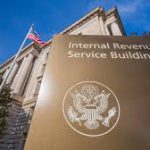The Term “Reasonable” appears in several places in the world of 401(k) plans. However, it is not defined anywhere in the composite body of information relating to 401(k) plans. This includes the Employee Retirement Income Security Act of 1974 (ERISA), The Department of Labor (DOL) regulations, the Internal Revenue Code (IRC), and the court decisions settling disputes over fees and expenses.
Some definitions of the term as found in Webster’s Dictionary include:
- Just
- Sensible
- Not extreme
- Not excessive
- Not expensive
- Using or showing sound judgement
In other words, the term cannot be definitely or precisely explained. For plan sponsors of a 401(k) plan this can be a true dilemma. The DOL regulations governing 401(k) plans and ERISA regulations both contain phrases referencing the term in the context of fiduciary duties and responsibilities of plan sponsors, such as:
- Only reasonable fees and expenses are to be paid out of plan assets.
- Service provider agreements must contain terms that are reasonable.
It seems, then, that deciding what the term means is subjective in nature. This subjectivity is evidenced by the myriad of court cases where the judge is called upon to decide what is meant by “reasonable” based on the facts and circumstances of each individual case. In many cases, issues having nothing to do with the actual amount of fees and expenses charged are factored into the final decision of the court in determining what is reasonable. Examples include: Relationship of the parties charging the fees, the nature of services rendered, the amount and quality of services rendered, the skill and level of expertise of the service provider.
One source of guidance in determining what is reasonable comes from the DOL. Their pamphlet titled “A LOOK AT 401(k) PLAN FEES” is written for the benefit of plan participants to help them understand the nature of fees and the impact of fees on their accounts. Some passages from the booklet that specifically addresses fees include:
- “consider fees as one of several factors”
- “compare all services received with the total cost”
- “realize that cheaper is not necessarily better”
- “Ensure that fees paid to service providers and other expenses of the plan are reasonable in light of the level and quality of services provided.”
- “generally, the more services provided, the higher the fees”
- “Fees need to be evaluated keeping in mind the cost of all covered services.”
- “Investment products that require significant management, research and monitoring services generally will have higher fees”
- “Funds that are “actively managed”…generally have higher fees”
- “Funds that are “passively managed”… generally have lower management fees”
The text of the booklet ends with the following sage advice regarding evaluating fees:
“Keep in mind that the law requires the fees charged to a 401(k) plan be “reasonable” rather than setting a specific level of fees that are permissible. Therefore, the reasonableness of fees must be determined in each case.”
Although the booklet from DOL is written for the benefit of employees, its guidance and advice is equally applicable to plan sponsors.
It should be obvious by now that the plan sponsor is encountering a dilemma. They want full administrative services, fiduciary liability management, good performing investments, advice and guidance for plan participants, and lowest fees and expenses. Plan sponsors are generally not familiar with the nature of fees and have little or no experience or skills at evaluating fee reasonableness or service providers. They are susceptible to the convincing words of skilled marketers and promoters who are no more than vendors of online-robo packages of employee do-it-yourself electronic gadgetry labeled as “self-help tools” described as “what plan sponsors and participants have been asking for”. With this comes low fees and the promise of fiduciary protection. The plan sponsor is all for it. It is unfortunate for plan sponsors, who are also plan fiduciaries, that they inadvertently become willing participants in setting themselves up for non-compliance with regulations and potential breach of fiduciary responsibility.
Plan sponsors cannot afford to overlook the fact that in order to be eligible for protection from fiduciary personal liability for losses in plan assets they must comply with complex regulations. In addition, they are charged with the responsibility of providing to plan participants and beneficiaries the necessary information and resources that will create an opportunity for them to take control of their accounts and to make informed decisions about the management of their accounts. Plan sponsors must accomplish this objective while making certain that only reasonable fees are paid out of plan assets. Unless the plan sponsor has on staff experts who have the skills and competencies to guide and assist the plan sponsor in successfully accomplishing this objective, then outside experts with the skills and competencies needed must be hired. Expert fiduciary advisors who possess the necessary knowledge, experience, skills and competencies are very few in number. If their skills and competencies include the ability to provide hands-on assistance for plan sponsors with the performance of fiduciary duties and responsibilities and to perform the necessary documentation, then it should be expected that the scope and quality of their services will be sufficient to justify their high fees as being “reasonable”. Of course, since the plan sponsor acting as plan fiduciary will benefit substantially from the services provided, the plan sponsor should expect to share a major portion of fees charged rather than expecting the plan participants to pay all fees charged. Skilled and competent expert advisors providing a broad scope of quality services is the key to fee “reasonableness”.
- PUTTING FEES IN PERSPECTIVE
The question to be answered regarding reasonableness of fees charged by an expert ERISA fiduciary advisor is: “what exactly is the plan and plan sponsor paying for?” Essentially, they are paying for the scope and quality of services rendered and for protections from personal liability. A thorough evaluation must be conducted of the fees paid and services and protections provided for fees paid.
A distinction needs to be made between services of “convenience” and services of “substance”. In addition, there must be side-by-side comparison of services rendered and protections provided by competing vendors as part of a due diligence process and also comparing the level of services and protections provided by different categories of professional advisors within the financial services industry who might be hired to service the plan. Such a comparison of professional advisor can be made between an investment advisor of retail securities and an expert ERISA fiduciary advisor. This is suggested as a fair comparison because of the level of fees charged by each.
Services Rendered:
An investment advisor of retail securities who provides services to the plan and plan sponsor will most likely be providing services of convenience. Examples include:
- Completing an investor’s order for securities trades
- Clearing securities transactions
- Researching financial statements, business plans and government filings of public companies
- Arranging for margin loans
- Providing investment advice and recommendations – – generally, according to a “suitability” standard
- Preparing documents for signature
- Record keeping services
Services provided by an expert ERISA fiduciary advisor will be services of substance. This is because the services will be characterized by hands-on performance of objective and deliberative processes and procedures for plan sponsors to assist them in the performance of their fiduciary duties and responsibilities and performing the necessary documentation. Examples include assisting plan sponsors in performing the following:
- Conducting due diligence for selecting investments for the plan
- Monitoring investments to determine continued suitability
- Initially selecting plan service providers, and then performing periodic monitoring and evaluation of service providers to determine if they should be retained or replaced
- Performing periodic trial audits to assure compliance with DOL and IRS regulations to maintain qualification for safe-harbor fiduciary protections and minimize exposure to fiduciary personal liability
- Coaching plan participants towards achieving Retirement Readiness
- Conducting seminars for Investment education and retirement education
- Performing services in the capacity of a “fiduciary”
Protections from Personal Liability:
The personal liability protections provided by each of these two professional advisors who might service the plan can easily be contrasted for evaluation.
An investment advisor for retail securities and their employer (Bank, insurance company, brokerage firm) might provide the following:
- Protection from personal liability for losses or under-performance in plan participant accounts – – none is provided.
- Advice and recommendations made in the “best interest” of the plan, plan participants, and plan sponsors – – None. The suitability standard does not require it and their employers will not allow it.
- Compliance with all regulations of DOL and IRS – – No, because they are not experts in ERISA Laws.
- Personal assets (home, investments, autos, etc.) of plan sponsors are protected from liquidation to restore participant account values that experience investment losses or underperformance – – No. Must have full compliance with regulations in order to qualify for this protection.
An expert ERISA fiduciary advisor is expected to provide the following fiduciary protections to plan sponsors through compliance will all DOL and IRS regulations:
- Protection from personal liability for losses or underperformance in participant accounts – – Yes, by full compliance with ERISA Section 404 (c)
- Advice and recommendations in the best interest of plan participants, the plan and plan sponsor – – Yes, because they are acting in a fiduciary capacity
- Personal assets of the plan sponsor are protected from liquidation to restore participant account values resulting from investment losses or underperformance – – Yes, by full compliance with ERISA Section 404(c)
What is it worth to the plan sponsor to be personally insulated from liability for investment losses or under-performance, and to have personal assets protected from forced liquidation to restore lost value in participant accounts, and to be assured that their best interest and interests of plan participants and the plan come first, and that their reputation and business have safeguards, and are most likely to avoid fines and penalties, and to be provided with a broad scope of quality services of substance? The value in terms of fees charged can be put in perspective by examining fees charged by some service providers and by investment advisors of retail securities for the services of convenience they provide and no fiduciary protections. Investment advisors of retail securities routinely charge between 0.75% and 1.15% of the value of account assets. Even on-line robo-advisory services where there is little or no contact with a human advisor routinely charge between 0.75% and 1.25%. Plan service providers who provide only recordkeeping services and possibly an intermediate level of administrative service and no protections and no “best interest” advice or recommendations routinely charge between 0.15% and 0.20%. 401(k) brokers who install plans and provide only some administrative assistance and no protections and no “best interest” standard routinely charge between 0.25% and 0.30%. By comparison, would a fee between 0.35% to 0.55% or more of plan assets be a “reasonable” fee for an expert ERISA fiduciary advisor to charge for a broad scope of quality services of substance and protection from personal liability for the plan sponsor? Deciding on what is reasonable is subjective.







